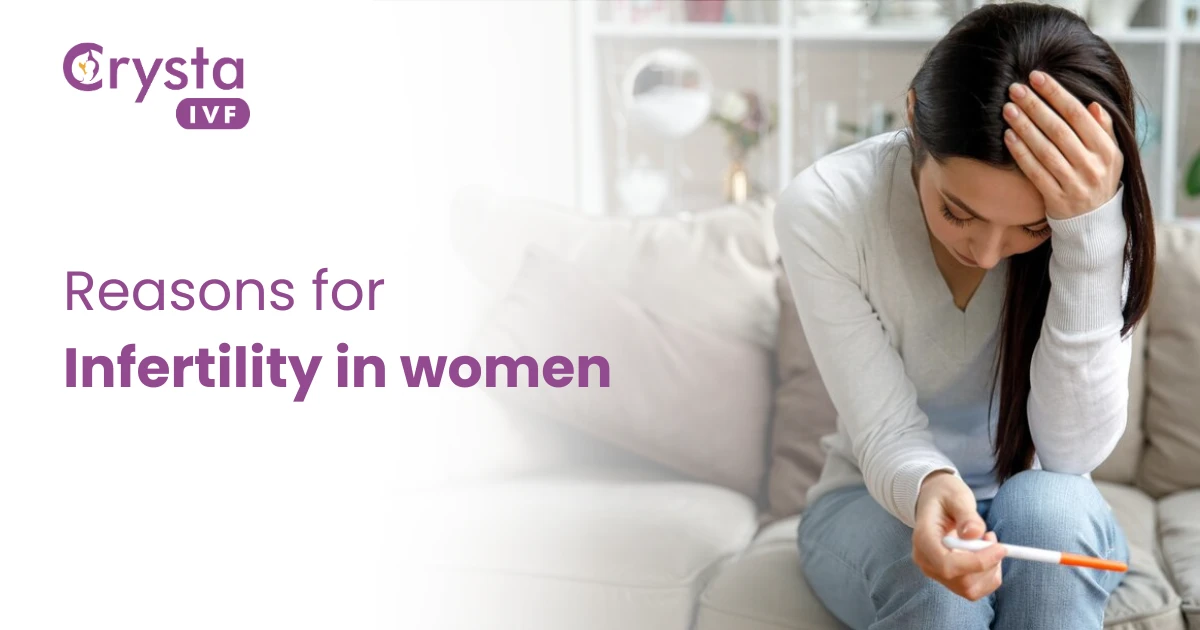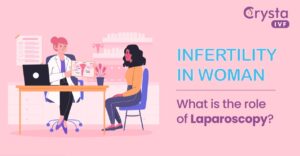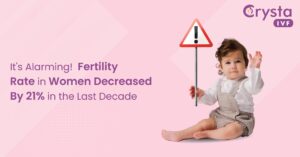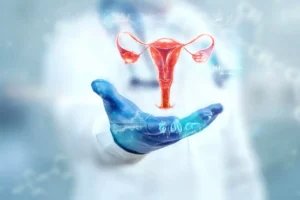To live a healthy life and to be able to give birth to a healthy baby is the dream of every woman. To fulfill their only dream filled with compassion, they tend to overcome all the obstacles despite knowing whether they are going to get any success in it or not.
Though pregnancy appears to be one of the most beautiful and exciting journeys, due to severe complications arising on the path, it can become a challenging one. The causes of female infertility are still not defined. If you are younger than 35 and have not been able to conceive for more than a year, or if you are older than 35 and haven’t been able to conceive for more than a year via unprotected sex, the higher possibility is that you have female infertility.
Female infertility is defined by age and cases where you have experienced several miscarriages or have undergone fertility treatments but failed to get any positive results.
In short, female infertility is a complex issue that needs to be addressed immediately, but to comprehend and clear your doubts better, it’s necessary to address the causes of female infertility that snatch dreams from millions of women.
How common is female infertility?
Infertility is a prevalent condition affecting many women, with at least 10% experiencing some form of it. Moreover, the likelihood of facing infertility increases as a woman ages.
What causes female infertility?
Infertility can arise from various potential factors, but accurately identifying the specific cause can be challenging. Sometimes, women may be diagnosed with “unexplained” or “multifactorial” infertility, indicating multiple contributing factors. Among the potential reasons causes of infertility in females are:
Problems with uterus
These encompass various conditions, such as polyps, fibroids, septum, Endometritis, Uterine cancer, or pre-cancerous conditions or adhesions within the uterine cavity. Polyps and fibroids can emerge spontaneously at any point, while certain abnormalities, like a septum, are congenital. Conversely, adhesions may develop after a surgical procedure like dilation and curettage (D&C).
Complications with fallopian tubes
Complications with fallopian tubes arise when the normal functioning of the fallopian tubes is impaired, leading to complications and difficulty in conceiving. The result can be seen in blocked or damaged fallopian tubes.
Blocked fallopian tubes: When your fallopian tubes are blocked, it indicates that there is an obstruction preventing the egg from traveling from the ovary to the uterus. This blockage is a sign of female infertility. It can result from various factors such as pelvic inflammatory disease, previous pelvic surgeries, endometriosis, or adhesions resulting from past infections or surgeries.
Damaged fallopian tubes: Fallopian tubes can also be damaged due to inflammation, infections, or other factors. This damage may lead to structural issues such as tubal adhesions, scarring, or distortion, affecting the ability of the fallopian tubes to pick up the released egg, transport it to the sperm for fertilization, and move it to the uterus for implantation.
Issues with ovulation:
Issues with ovulation talk about the signs you can’t get pregnant! Some common ovulation-related factors contributing to female infertility include Anovulation, PCOS, Premature ovarian insufficiency, thyroid disorders, Diminished ovarian reserve, chronic stress, excessive exercise, certain medications, etc.
Challenges with egg quality and quantity
The causes of infertility in females also occur due to their numerous challenges with eggs’ quality and quantity. Women are known to be born with all the eggs they will ever have, and eventually, this supply runs out before menopause (the period when your menstruation ends). In addition, some eggs in their ovaries have the wrong number of chromosomes, so they fail to fertilize or grow into a healthy fetus. Some of the crucial chromosomal issues, like balanced translocation, may affect all of your eggs. Other problems are ineffective at an earlier stage, but they become more common and affect a woman as she ages.

Who is at Risk for Female Infertility?
A multitude of factors can influence female infertility risk. These encompass general health conditions, genetic predispositions, lifestyle decisions, and age, all of which can affect fertility. Some specific contributing factors may include:
- Age
- Obesity
- Underweight/ overweight
- Endometriosis
- Uterine fibroids
- Cysts
- Structural problems with fallopian tubes, ovaries, and uterus
- Tumors
- Autoimmune disorders
- PCOS
- Sexually transmitted infections
- Smoking
- Excessive alcohol consumption
- Past Ectopic tubal pregnancy
- DES Syndrome
If you are struggling with the above-listed challenges, you are at higher risk of getting diagnosed with female infertility.
Besides looking over these conditions, it is important to notice the early symptoms that arise with female infertility.
Decoding female infertility: Identifying common symptoms?
The symptoms of the signs you can’t get pregnant can vary from woman to woman, depending on the specific cause. Some of the symptoms of female infertility are:
- Abnormal bleeding
- Irregular menstrual cycle
- Painful periods
- Hormonal changes
- Pelvic pain
- Unexpected weight gain/loss
- PCOS
Did you notice any of these symptoms? Are you in doubt about how you will overcome this female infertility complication?
You do not have to get anxious; if you are in the early stages, you can consult a fertility specialist and make specific lifestyle changes to boost your fertility.
Tips to boost your fertility naturally!
Women thinking about getting pregnant and planning for infertility treatment needs to make specific lifestyle changes to increase conception likelihood. These essential tips are:
- Maintain a healthy weight
- Quit smoking
- Avoid alcohol
- Reduce stress
It is time to consult a fertility specialist to determine the possible female infertility treatment and what exact complications you are suffering from. If you have any doubts, you can reach out to the leading fertility chain in India, Crysta IVF.
Crysta IVF: brings hope to your life and your family!
There can be various causes of infertility in females, but addressing them at an early stage is essential.
So, to break the infertility barriers in your life and consult a fertility specialist at Crysta IVF, the best IVF center in Delhi, you just need to visit our webpage and book an appointment.
Here, fertility experts will ensure you receive the best solution for your reproductive health issues combined with the latest technology.
With the help of personalized treatment, an IVF expert will recommend what female fertility treatment will suit you and work for you to remove all the hurdles from your path to living your parenthood dream.




